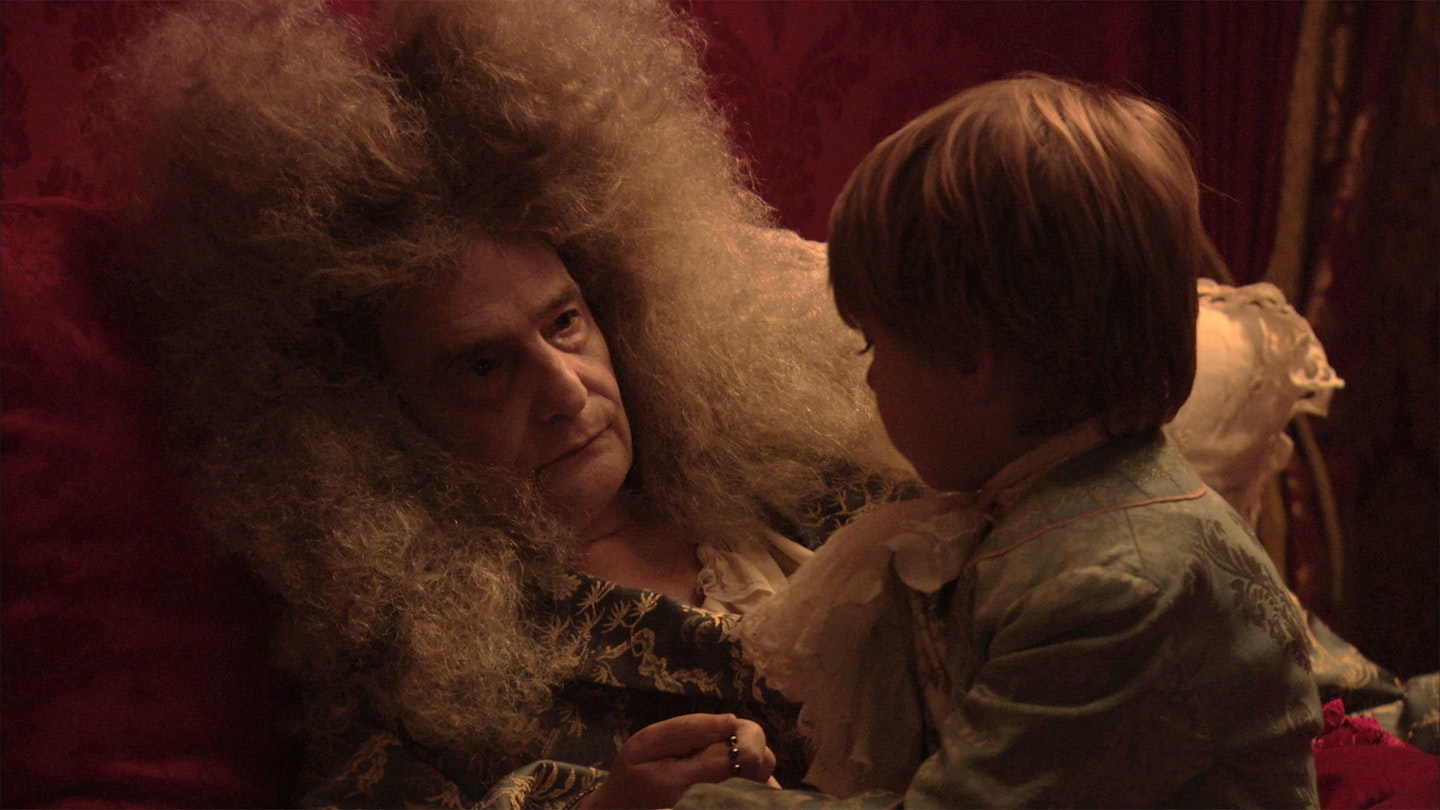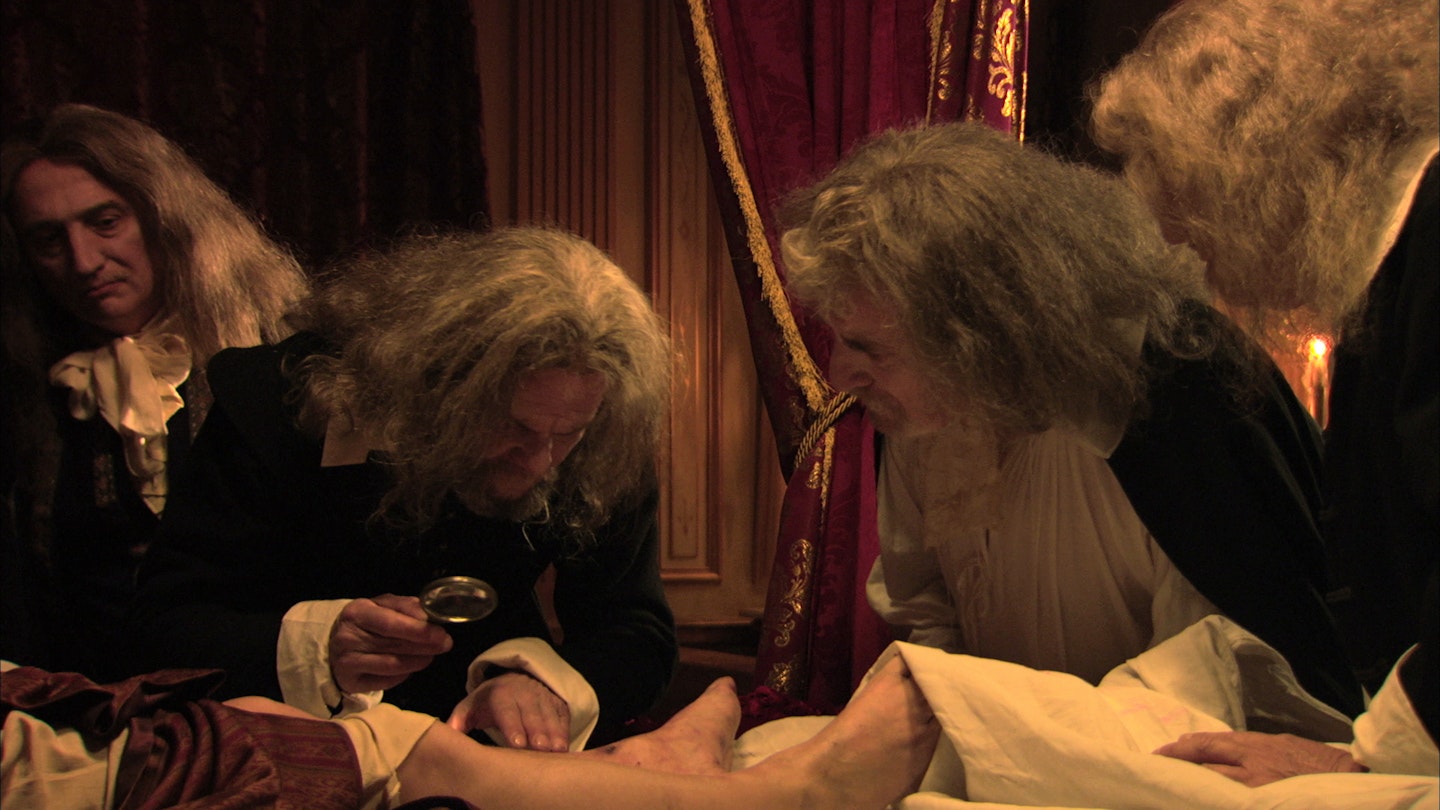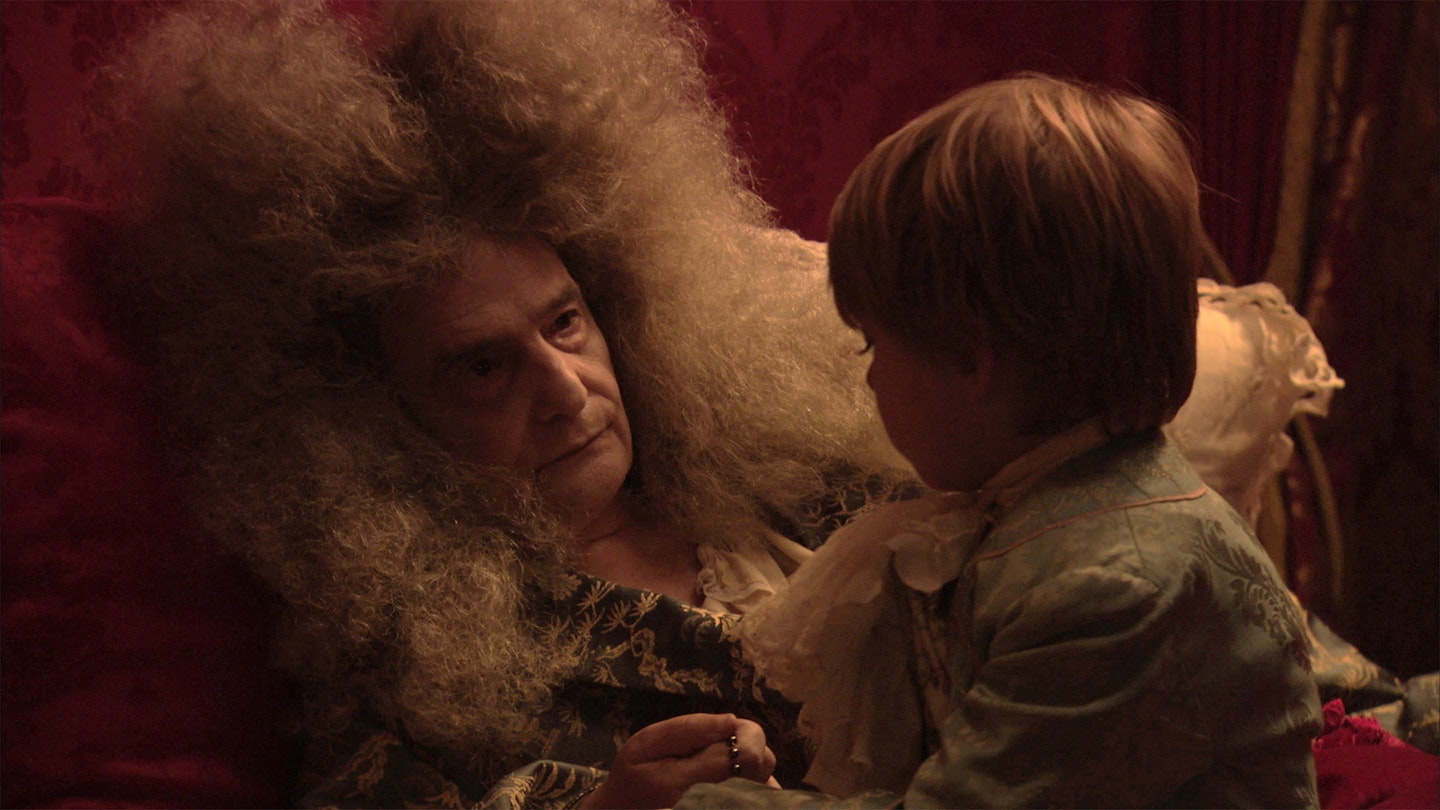Albert Serra’s previous movie, Story Of My Death, imagined a fatal meeting between Casanova and Count Dracula. Clearly, the Catalan director is working his way through some unofficial mortality phase, because The Death Of Louis XIV is another study of earthly demise. The title is unforgivingly literal: for two lugubrious hours, Serra entombs us in the darkened royal chamber of the Sun King as the last pinches of light fade from his life. Favouring meticulous period detail over narrative, his claustrophobic death-chamber piece will either enrapture or infuriate, pushing slow cinema to the point of total inertia. In fact, it almost feels like an audience-embalming experiment.

Majestically slumped on his death-bed, Jean-Pierre Léaud’s Louis cuts a surreal, ghostly figure, his pale face framed by an absurd puff-ball wig that floats over his head like a thundercloud. As gangrene slowly climbs up his leg, physicians hover in resigned alarm, attempting to delay the inevitable with grim 17th-century voodoo. First they try donkey’s milk, then frog fat, then bull semen, all administered in scrupulous, fascinating detail.
Shot in a low-lit, tawny murk, the crepuscular beauty of Serra’s compositions suggest a living Rembrandt painting but the film’s creeping emotional power lies in his use of cinema’s greatest weapon: the close-up. Léaud barely speaks. He doesn’t need to: it’s a performance of micro-expressions, his every flinch and wince amplified in intense, screen-filling zooms.

Still, what’s the point? Well, Léaud’s casting is absolutely key to Serra’s vision. Introduced as the 14-year-old star of The 400 Blows, Léaud’s life was famously serialised by Truffaut – he practically grew up on the big screen. Reduced to a fragile husk in Louis XIV, Serra uses the New Wave icon’s demise as a lament on the slow death of arthouse cinema. The delivery’s administered like a sedative, but the message is sharply provocative.
